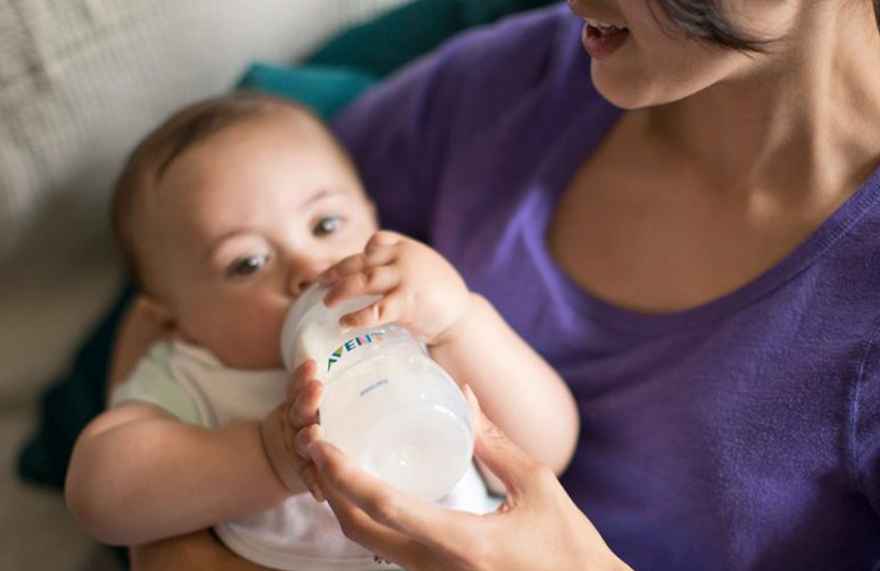On feeding: Why I think 'Fed is Best'.

There are so many things to think about when you’re pregnant. Our minds are filled with excited anticipation, the pregnancy journey itself, our hopes and dreams for our little one and our family. Thoughts about the impending labour, and how to get this baby out, consume us as well, as we are simultaneously surrounded by other people’s stories and input. As we try to navigate all of this, and work out what is best for baby, mother, the family, there is something else we are often slowly, subconsciously, percolating in the back of our minds. And that is feeding our baby. Yes, this is a big one. With all the messages about what we should do when it comes to feeding, I don’t think there are many mothers around who would not have internalised the ‘breast is best message’. It is embedded as the gold standard in feeding, and for good reason. The World Health Organisation recommends the exclusive breastfeeding of our babies for at least 6 months and it’s hard not to hold this up as the shining goal to strive towards. Now this is definitely not an anti-breastfeeding blog. I am very pro breastfeeding. I completely acknowledge that if you can breast feed and want to, then this is definitely the best path to go down. There is much evidence to support breastfeeding as the preferred way to feed babies. It would be easy for me to sit here and write a blog on all the good things about breastfeeding… However, what I want to highlight today is something different. And that is that I would like the discussion around the how of feeding our babies to be much more balanced. It’s the balance that is definitely missing from our collective dialogue. Over my many years as a midwife, I witnessed first-hand the different experiences women had with breastfeeding. For some the latch worked, the baby sucked well, there was plenty of milk and it came easily. For others they needed a bit more assistance with the latch, the baby took a little while longer to get the hang of it, but with help they got there. Just as nothing is the same in individual pregnancies and labours, nothing is the same in breastfeeding. For every woman who finds it a breeze, there will also be other women struggling. Sore nipples, poor supply, poor advice, this list goes on and on… The variation in the individual baby’s ability to feed well is enormous too. It is not a one size fits all experience. Now, in my role as a sleep coach, I continue to come across many mothers finding breast feeding difficult. Recently I met a lovely new mum, Ellie. I was working with her to support her in the newborn stage, and lots of talk about feeding happens in this time as well. Ellie was in what I call the ‘latch, feed breastmilk, supplement with breastmilk, then pump’ cycle. Literally her whole existence revolved around feeding! She had seen a lactation consultant early on, which was really smart. She was taught to feed as best she could, and then express some breast milk that she could use as the top ups in a bottle. Ellie desperately wanted to breastfeed her baby and was trying so hard to achieve this. So hard. By the time I started working with Ellie I felt as if she was on the verge of a nervous breakdown. She felt trapped in a never-ending cycle of exhaustion, day in and day out. She would breastfeed her baby, then pump for the top ups, then she had a very short time to get her to sleep before she had to start the whole process again. She said: ‘Emma, I hardly have time to eat, shower, even enjoy and cuddle my baby, least of all sleep.’ Ellie was broken. Over the next week we talked a lot about what breastfeeding meant to her. How she had always imagined it to be the pinnacle of motherhood. She felt pressure from her mother to breastfeed as well as her husband. She held onto subconscious ideas that bottle feeding was inferior and that if she chose to bottle feed there would be a negative connotation around it. We talked a lot. I always loved Ellie’s honesty and I gently introduced to her the idea that topping up the breastfeeding with formula would be ok. In fact, much more that ok! She would get time back; she could take the pressure off herself and she could enjoy more cuddle time with her beautiful baby girl. I truly believe that if we hadn’t had that hard discussion around her mindset and expectations, she would have totally broken down with exhaustion and despair. Ellie loved the compromise, it worked wonderfully, and she started to feel herself again. But I wondered why it was so hard for her to initially accept that this was ok? I felt upset for her that it was. It just shouldn’t have to be this hard for mothers! There are many examples I’ve seen through my work where mothers have chosen to bottle feed and use formula, such as: • A mother who’s had depression pre-pregnancy and has been off her medication during the pregnancy and really needs to resume them again. Mental health matters. • A mother suffering from post-natal depression and really needs to begin some antidepressant treatment. • For a mother whose breast milk supply is simply not there. And despite trying everything, it doesn’t improve. This can easily lead to poor weight gain and in severe cases can lead to extreme undernourishment. • Women who want to go back to work, or women who need to go back for economic reasons. Workplaces rarely support a woman’s need to pump at work. Many times women are relegated to the toilets to pump. Not nice, or easy. And not easy to sustain. • Women who have had a bi- lateral mastectomy – they simply cannot breastfeed. • A baby who has milk intolerances or allergies, and they need to go on a prescription formula • A woman who had such a hard time of it the first time around that she just decides that this time it’s going to be bottle feeding all the way. Her decision. • And a woman who decides that she just doesn’t want to breastfeed. Breast feeding can be hard. I’ve heard it said many times that it is ‘an art and a science’ And considering this, I do wish that women got a lot more support following their return home from hospital. Support to learn, establish, and sustain the art of breastfeeding. I would love to see a system of care where women can access help to feed their babies in a way that is safest and best for them. Best for the baby and the mother. Sadly, I’ve seen time and time again mothers feeling a sense of loss and failure when they can’t breastfeed or choose not to for whatever reason. When a mother is in the middle of a breastfeeding crisis it can be hard to defy the strong breastfeeding advocates or any hard-line attitudes. They can be made to feel that they just didn’t try hard enough. And when this happens, I believe people judging women around their choice can contribute to maternal mental health issues. Mothers who are formula feeding often tell me that it can be lovely, in that their partner can share in the feeding and experience the nurturing and intimacy that this special time provides. I come strongly from the perspective that ‘mums matter too’. So, let’s be kinder to each other on this motherhood journey. No negative comments, put downs, no making any mother feeling less than if she is formula feeding her baby. And to all the mums, whether you’re formula feeding, mixed feeding or breast feeding, it’s ALL good. It’s all OK. 100% Ok. Everyone is just doing their best…….. Because a happy mum, means a happier baby. In fact the well-being of the whole family improves when mums are happy and thriving. In my view ‘Fed, is definitely best’.
Categories
- Testimonials (76)
- Blog (26)
- Uncategorized (2)
- Daylight Savings (2)
- Food and Sleep (4)
- Naps (4)
- 4, 5, 6 Months (2)
- 7-12 Months (1)
- Newborn (4)
- Night Sleep (2)
- Sleep teaching (7)
- Teething (1)
- Toddler Sleep (2)
- Holidays and Travel (2)
- Testimonials_1 (12)
- Testimonials_2 (12)
- Testimonials_3 (12)
- Testimonials_4 (12)
- Testimonials_5 (12)
- Testimonials_6 (12)
- Testimonials_7 (4)


0 comments
Leave a comment
Please log in or register to post a comment